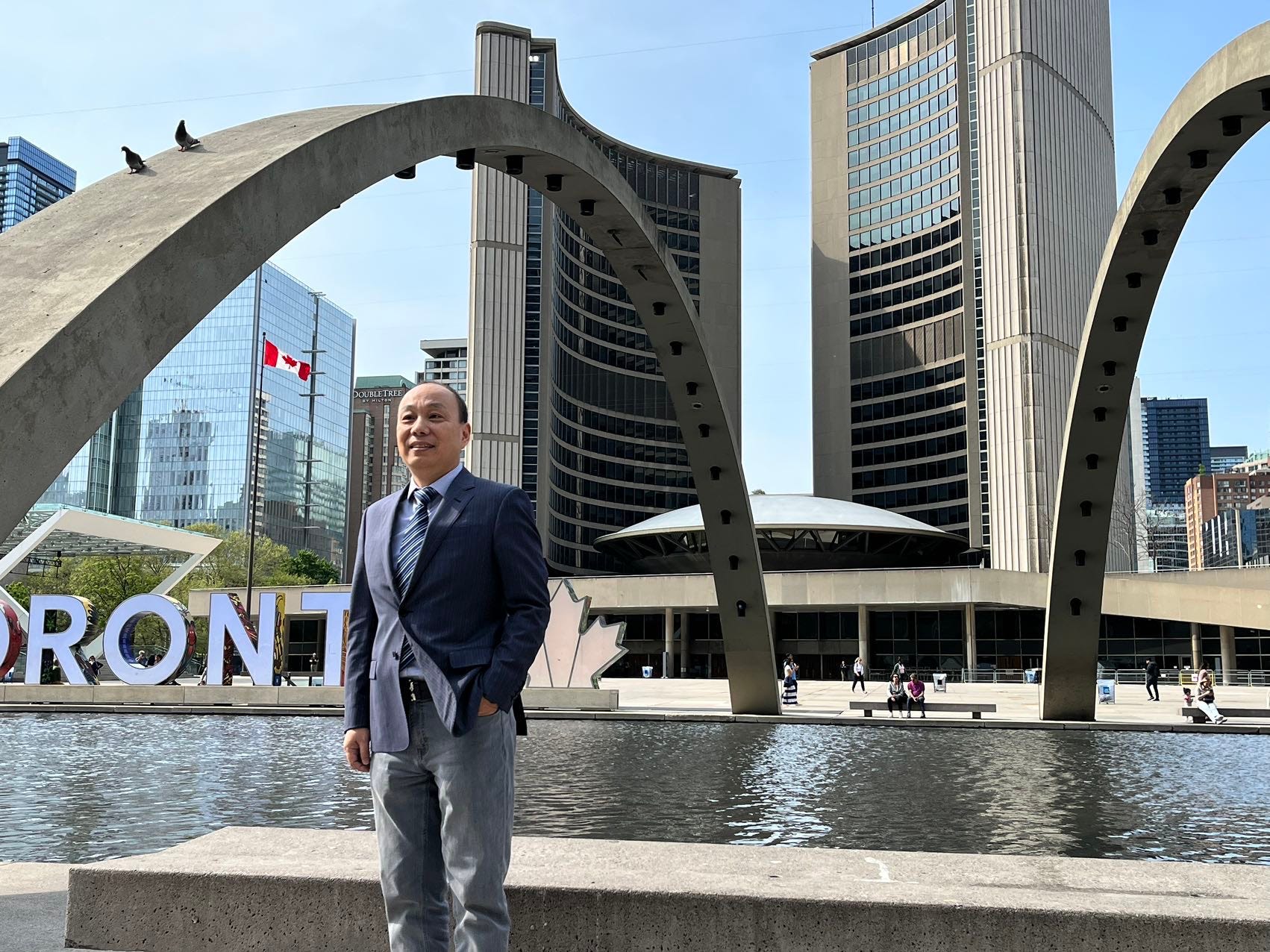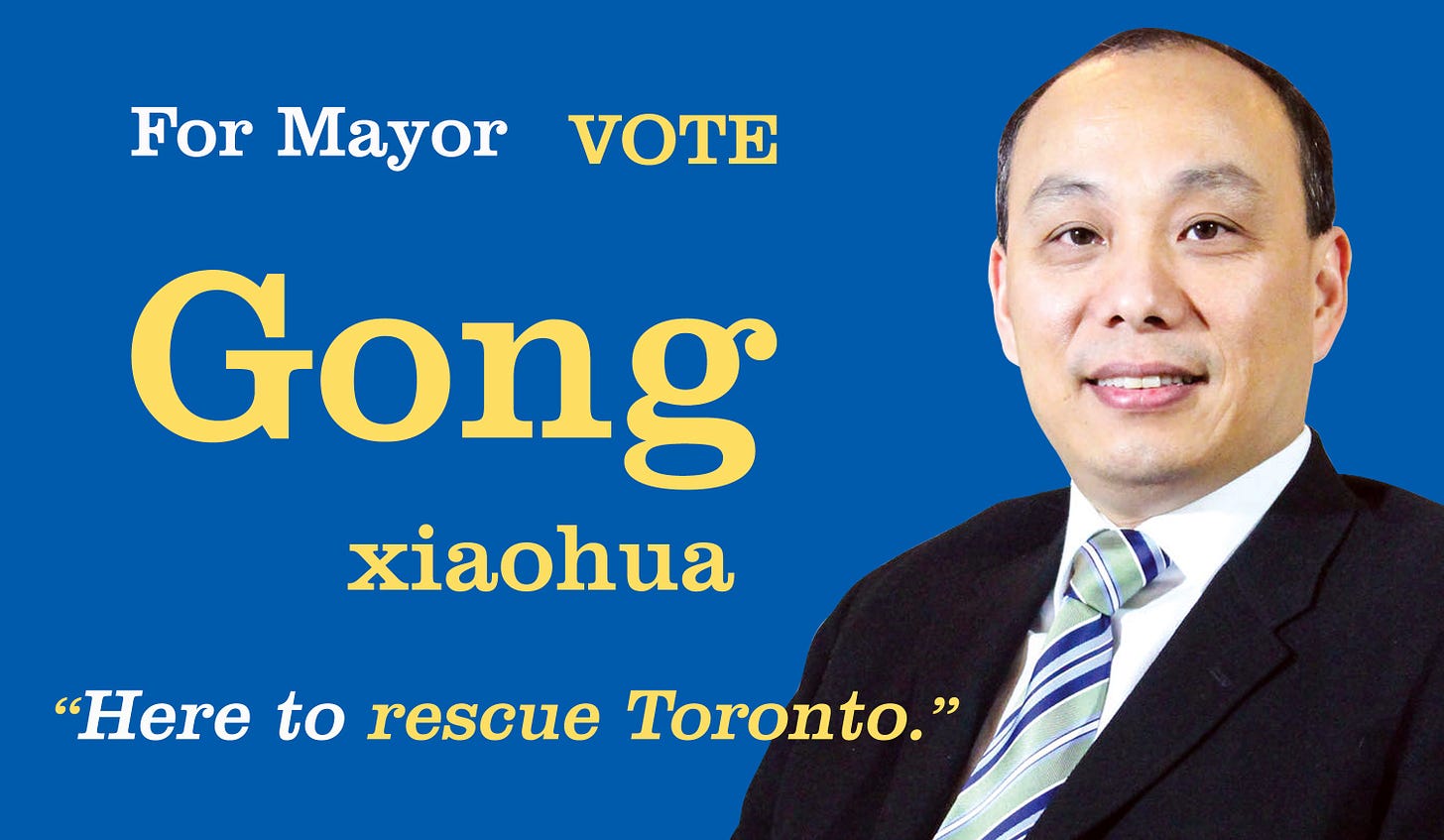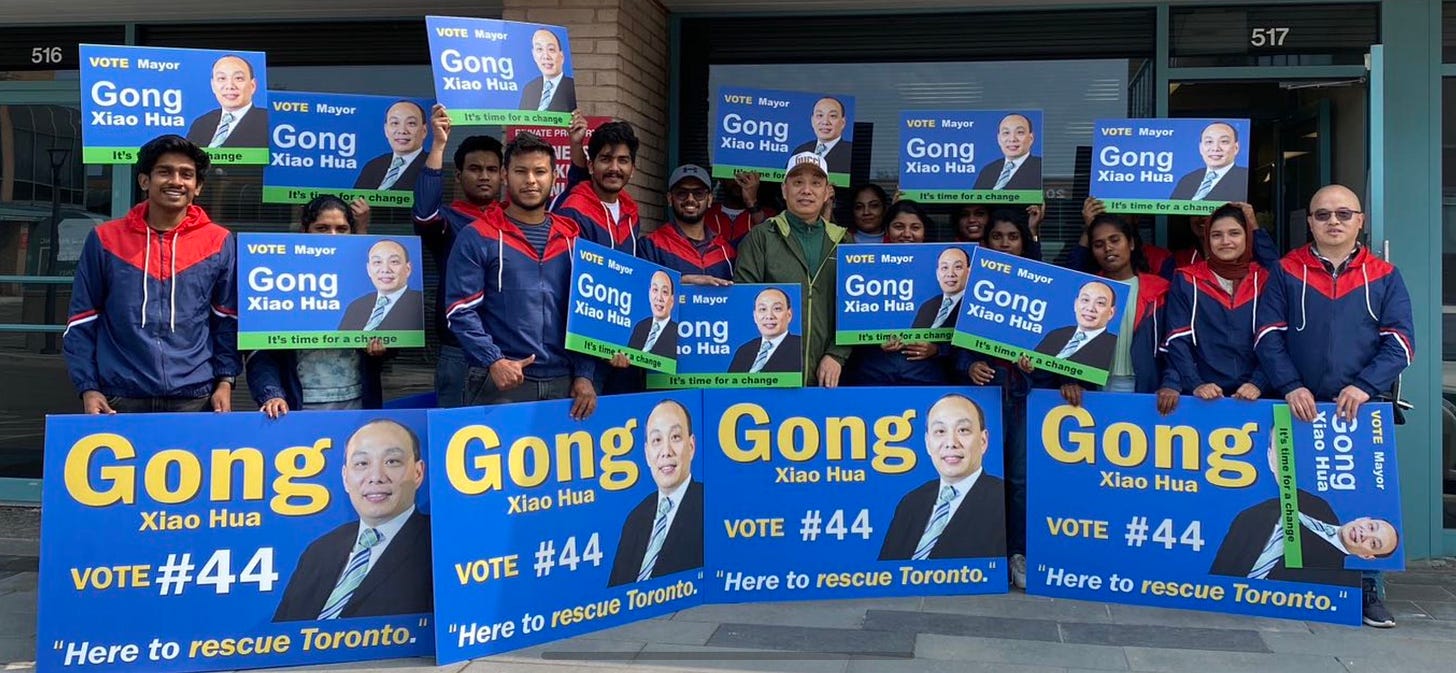Who's responsible to ensure fair elections?
Candidates have the tools and the responsibility to prevent voter fraud

Xiao Hua (Edward) Gong received 2,983 of the more than 722,000 votes cast, or about 0.4 percent of the vote in Monday’s mayoral by-election in Toronto. That placed him 11th in a field of 102 candidates, well behind winner Olivia Chow who garnered 269,372 votes, or 37% of the votes cast. Gong is demanding a recount.
Election recounts are used to confirm a result, when it’s veracity is in doubt. In Ontario municipal elections, they are required when two candidates tie for a win. There was no tie in Monday’s by-election. Gong did not finish second. Gong did not come close.
His call for a recount suggests he is doubtful about the accuracy of the election result. Yet, he doesn’t seem to recognize the person most responsible for ensuring the accuracy of the vote count is not the city’s election staff. The person most responsible to ensure Edward Gong was not robbed of victory by shady vote counting is, well, Edward Gong.

Money alone does not win elections
As far as I can tell, Gong did no real campaigning at all beyond hiring teams to plant thousands of election signs on public property across the city, buy advertising on multiple media platforms including giant electronic billboards in Toronto’s downtown Yonge-Dundas Square, and entering a float in the city’s Pride parade the day before election day.
Money is essential to win an election in any democracy. Campaigns cost money. But, money alone cannot win any election. It certainly could not deliver Edward Gong to the mayor’s chair in Canada’s largest (or any) city.
Every candidate in every election in Canada, including Toronto’s recent mayoral by-election, is permitted to be present or have trusted staff/volunteers be present on her/his behalf inside every polling place. These people, whom the candidate trusts to be his/her eyes and ears are called “scrutineers.”
Scrutineers observe the voting activity to ensure only qualified electors are allowed to vote and they are allowed to vote just once.
They watch as election officials find the elector’s name on the voting list – or add it correctly to the list – and strike it off indicating the elector has been given a proper ballot. Scrutineers can object under certain circumstances to the addition of a voter to the list if they have grounds to believe the elector is not qualified.
Scrutineers observe that only one ballot per elector is entered into the ballot box or processed through the tabulator machine – and no others are entered. There can be no “stuffing of ballot boxes” under the watchful eyes of scrutineers observing the process first-hand on behalf of each candidate. They ensure the ballots and data cartridges are secured properly and sealed. They also observe them being unsealed at a central counting or data recording place, if applicable.

Well-trained volunteers and professionally run campaigns win elections
At any time, scrutineers can call their candidate’s campaign office or legal hotline to register any concern they may have about the process taking place in their polling station. Scrutineers watch everything to ensure no one “steals the election” from their candidate. And every candidate has scrutineers doing the same. That transparency keeps our elections free and fair.
Of course, all this depends on candidates having properly trained scrutineers present through the voting process at every polling station. That’s not easy. In Toronto, there were more than 1,500 polling stations one Election Day – each open for 10 hours, with setup and tear down before and after. Plus, there were six days of advance voting – and mail-in ballots. Campaigns need thousands of scrutineers.
Many campaigns can’t motivate enough volunteers to fill all the scrutineer roles. So, they go without and rely on the integrity of the professional, non-partisan elections staff. This is a low-risk option, considering Canada’s election officials are among the most honest and trustworthy in the world.
I find it highly doubtful that Edward Gong had scrutineers present in all the polling stations all the time. In fact, when I voted Monday, there were no scrutineers present from any of the campaigns. But, Gong had the opportunity to have his trusted representatives present. He chose not to use this opportunity.
If Gong, or any other candidate, couldn’t manage to motivate enough volunteers to provide scrutineers in polling stations, it’s inconceivable that he would have motivated 300,000 Toronto electors to cast their ballots for him. Even more preposterous is that 300,000 votes for Gong were somehow “dematerialized” in a system that is entirely transparent to all the candidates, including him.
Edward Gong was responsible for ensuring all his votes were counted. If a recount is required, it means he has only himself to blame.



